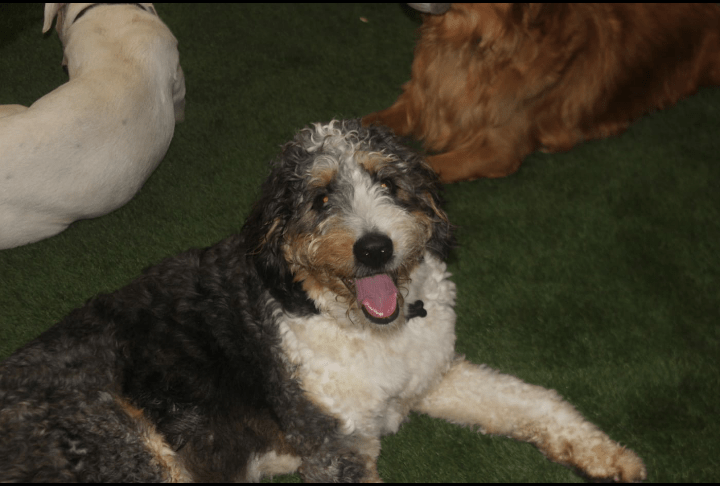Dog socialization is a crucial aspect of responsible pet ownership, helping to ensure that your furry friend develops into a well-adjusted and confident canine companion. In this article, we’ll explore various socialization activities that can enrich your dog’s life and strengthen your bond together.
Introduction
Importance of Socialization for Dogs
Socialization plays a vital role in shaping a dog’s behavior and temperament, especially during their formative months. Exposing your dog to a variety of people, animals, environments, and experiences helps them become more adaptable and resilient in different situations.
Benefits of Engaging in Social Activities
Regular socialization activities offer numerous benefits for dogs, including improved communication skills, reduced anxiety, increased confidence, and enhanced overall well-being. By providing positive experiences and exposure to new stimuli, you can help your dog develop into a well-rounded and happy companion.
Understanding Dog Socialization
Definition of Dog Socialization
Dog socialization refers to the process of exposing your dog to various stimuli, including people, animals, environments, and experiences, in a positive and controlled manner. Socialization begins in puppyhood and continues throughout a dog’s life, helping them develop appropriate social skills and behaviors.
Developmental Stages and Critical Periods
Puppies are most receptive to socialization between the ages of 3 weeks and 14 weeks, known as the critical socialization period. During this time, puppies are highly impressionable and more open to new experiences, making it crucial to expose them to a wide range of stimuli in a safe and controlled environment.
Outdoor Socialization Activities
Dog Parks and Playdates
Dog parks provide an excellent opportunity for off-leash play and interaction with other dogs. Supervised playdates with friendly, vaccinated dogs can help your dog learn appropriate social cues and manners, such as sharing toys and taking turns.
Group Training Classes
Group training classes offer structured learning opportunities in a controlled environment. These classes not only teach basic obedience commands but also provide valuable socialization experiences as dogs interact with classmates and instructors.
Indoor Socialization Activities
Playtime with Toys and Puzzles
Indoor playtime with interactive toys and puzzles engages your dog’s mind and body. Activities such as fetch, tug-of-war, and puzzle feeders provide mental stimulation, promote problem-solving skills, and strengthen the bond between you and your dog.
Hosting Gatherings with Friends and Family
Hosting gatherings or inviting friends and family over allows your dog to socialize in familiar surroundings. Exposing them to different people, voices, smells, and experiences helps build confidence and reduces fear of the unknown.
Creative Socialization Ideas
Visiting Pet-Friendly Establishments
Take your dog along to pet-friendly cafes, shops, and events in your community. Exposing them to new environments and social situations in a positive and controlled manner helps desensitize them to novel stimuli and builds confidence in various settings.
Participating in Canine Sports and Competitions
Engaging in canine sports and competitions, such as agility, obedience, and nose work trials, provides both physical and mental stimulation for your dog. These activities offer opportunities for socialization with other dogs and handlers while promoting teamwork and bonding.
Overcoming Socialization Challenges
Fear and Anxiety in New Situations
If your dog shows signs of fear or anxiety in new situations, start with gradual exposure and positive reinforcement. Use treats, praise, and calming techniques to help them feel more comfortable and confident, and avoid forcing them into overwhelming situations.
Dealing with Reactive Behavior
If your dog displays reactive behavior, such as barking, growling, or lunging, seek professional guidance and support from a qualified dog trainer or behaviorist. They can help you develop a behavior modification plan tailored to your dog’s specific needs and address underlying issues causing reactive behavior.
Importance of Consistent Socialization
Lifelong Benefits for Behavior and Well-Being
Consistent socialization throughout your dog’s life helps maintain positive social skills and behaviors. By continuing to expose them to new experiences and environments, you can prevent behavioral issues and ensure a happy, well-adjusted companion for years to come.
Conclusion
Socialization is an ongoing process that significantly contributes to your dog’s behavioral development and overall well-being. By incorporating a variety of socialization activities into your dog’s routine and providing positive experiences in different settings, you can help them become confident, adaptable, and well-rounded companions.
FAQs
How often should I socialize my dog?
Ideally, you should socialize your dog regularly from puppyhood throughout their life. Aim for daily socialization opportunities, including walks, playdates, and training classes, to help them build confidence and develop appropriate social skills.
Can I socialize my adult dog?
Yes, you can socialize adult dogs, but it may require more patience and time than socializing puppies. Start slowly and gradually expose them to new experiences and environments, using positive reinforcement to reward calm and confident behavior.
Are there any socialization activities I should avoid?
Avoid overwhelming your dog with too many new experiences or stimuli at once, as this can lead to fear or anxiety. Additionally, steer clear of dog parks or crowded environments if your dog is uncomfortable or reactive around other dogs, and prioritize their comfort and well-being during socialization outings.







